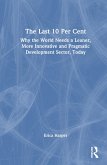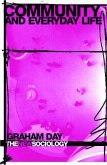In the rising momentum for new and reformulated cultural identities, the Turkish Alevi have also emerged on the scene, demanding due recognition. In this process a number of dramatic events have served as important milestones: the clashes between Sunni and Alevi in Kahramanmaras in 1979 and Corum in 1980, the incendiarism in Sivas in 1992, and the riots in Istanbul (Gaziosmanpasa) in 1995. Less evocative, but in the long run more significant, has been the rising interest in Alevi folklore and religious practices. Questions have also arisen as to what this branch of Islamic heterodoxy represents in terms of old and new identities. In this book, these questions are addressed by some of the most prominent scholars in the field.
Hinweis: Dieser Artikel kann nur an eine deutsche Lieferadresse ausgeliefert werden.
Hinweis: Dieser Artikel kann nur an eine deutsche Lieferadresse ausgeliefert werden.
'As no one with a serious interest in modern Turkey can afford to ignore the Alevi, this book, with its numerous illustrations, some in colour, will become essential reading. Its penetrating insights into a vibrant community facing profound challenges will help the reader understand what underpins the lives of millions of Alevis.' - J.D. Norton, British Journal of Middle Eastern Studies
'As no one with a serious interest in modern Turkey can afford to ignore the Alevi, this book, with its numerous illustrations, some in colour, will become essential reading. Its penetrating insights into a vibrant community facing profound challenges will help the reader understand what underpins the lives of millions of Alevis.' - J.D. Norton, British Journal of Middle Eastern Studies









